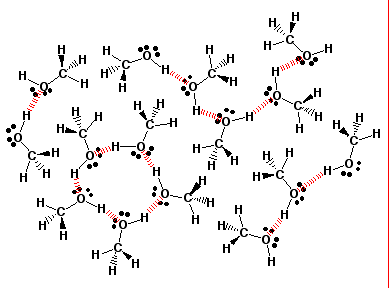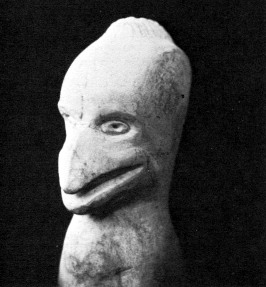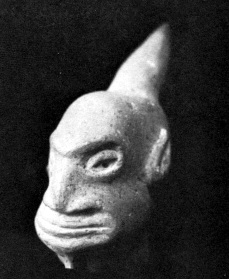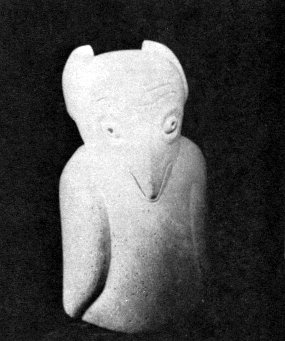

by plams
Have been reading "the internet" on H.P. Lovecraft copyrights. As in, who owns them?
Wikipedia embraces the argument of Lovecraft scholar S.T. Joshi that the works are mostly in the public domain. Yet copyright claimants exist and approvals must be sought.
The best articles are Dan Harms' and Chris Karr's. An essay by Dwayne H. Olson (aka D.H. Olson) in the Donald Wandrei anthology Don't Dream (Fedogan & Bremer, 1997) covers issues similar to Karr's -- both actually looked at the court documents in Wandrei's papers in the Minnesota Historical Society.
Joshi makes no mention, Olson notes, of the court records in the long-running probate suit over Lovecraft rights, where ownership issues were exhaustively at issue. Olson summarizes the court's findings of five categories of Lovecraft material and degrees of ownership between August Derleth and Donald Wandrei, founders of Arkham House and the two people most responsible for Lovecraft having any literary legacy whatsoever. After their Lovecraft anthology was rejected by major publishers in the late 30s, they started their own company and eventually, over several decades, built the Lovecraft brand, as we would now say.
The probate court expressly didn't decide copyright issues, only the nature of Wandrei's and Derleth's joint ownership of Lovecraft properties after Derleth's death in 1971. Yet the court papers give a vigorous summation of what these literary properties were, including various iffy questions about conveyances of rights. To my mind these questions weren't nailed down back in the day because no one involved, including various Lovecraft distant heirs, thought the property had any value. The heirs and executor were more than happy to grant Wandrei and Derleth whatever rights they needed to develop these speculative properties: "Go, knock yourselves out, and best of luck" seems to have been the attitude.
After 12 years of litigation in which Derleth's lawyer and executor tooled Wandrei around in court (the lawyer was subsequently fired by Derleth's daughter for his scheming), a settlement was reached giving Wandrei 53% and the Derleth estate 47% of the Lovecraft properties, according to Olson. S.T. Joshi would have us believe that these are percentage ownerships of nothing but the trick is proving it. If Arkham House, its partners and their heirs say they have "chain of title" on copyrights, who is going to court to establish otherwise? Likewise it's very unclear what relation the "big" publishers (Del Rey and Penguin) have to the copyrighted material. Do they pay a stipend to the Derleth and Wandrei heirs and assigns for all the books they sell? (Stephen King wonders something similar in the 2004 foreword to Michel Houellebecq's Lovecraft book, although he neglects to mention Wandrei.)
Dan Harms concludes, and I think I agree with this:
This accounts for why exactly the HPL copyright question is unlikely to be resolved for some time to come. It’s not in the best interests of any of these publishers [Del Rey, Penguin, Arkham House] to raise the issue, because they’ll make pretty much the same amount of money either way. It’s not in the best interests of the rights owners to go to court, because they can only lose. Nobody else really has the money or time to go through with it, and the benefits of such a lawsuit are likely to accrue to people who didn’t actually file it. Adding to this the current trend of extending copyright terms again and again, we’ll not likely see HPL be free and clear in the public domain for some time to come.

Plams posted this to dump.fm; I've been tinkering with it and will probably keep working on it.
I enlarged but changed it from a 2-way < => to a one-way gif just to keep the file size small. Eventually it may go back to two-way.
This is an algorithmic morph and it's amusing to see what the program is trying to do.
First problem is images with light coming from opposite directions; in ten frames the shadows have to move to their opposite sides. Second is what to do with the base of the green shaft. The program opts to have it fade from existence. Lazy! Between the green base disappearing and the light changing sides you end up with a strange, awkward twist or crimp in the vertical shaft that we're not supposed to notice.
The next phase will be to redraw these frames by hand and re-animate them. I think I can smooth out some of the obvious incongruities and make a more seamless transition. It will be drawn in a different style but keeping these basic shapes. Why? Obsessive problem solver artist type.
The Atlantic has a slippery essay about what Obama's "you didn't build that" speech means. Andrew Cline claims that with or without the out-of-context quote, the speech is a controversy-worthy "philosophical rewriting of the American story."
Here's what Obama said:
There are a lot of wealthy, successful Americans who agree with me -- because they want to give something back. They know they didn't -- look, if you've been successful, you didn't get there on your own. You didn't get there on your own. I'm always struck by people who think, well, it must be because I was just so smart. There are a lot of smart people out there. It must be because I worked harder than everybody else. Let me tell you something -- there are a whole bunch of hardworking people out there.
If you were successful, somebody along the line gave you some help. There was a great teacher somewhere in your life. Somebody helped to create this unbelievable American system that we have that allowed you to thrive. Somebody invested in roads and bridges. If you've got a business -- you didn't build that. Somebody else made that happen. The Internet didn't get invented on its own. Government research created the Internet so that all the companies could make money off the Internet.
The point is, is that when we succeed, we succeed because of our individual initiative, but also because we do things together. There are some things, just like fighting fires, we don't do on our own. I mean, imagine if everybody had their own fire service. That would be a hard way to organize fighting fires.
So we say to ourselves, ever since the founding of this country, you know what, there are some things we do better together. That's how we funded the G.I. Bill. That's how we created the middle class. That's how we built the Golden Gate Bridge or the Hoover Dam. That's how we invented the Internet. That's how we sent a man to the moon. We rise or fall together as one nation and as one people, and that's the reason I'm running for President -- because I still believe in that idea. You're not on your own, we're in this together.
Cline claims Obama is saying in this speech that "government is not a tool for the people's use, but the very foundation upon which all of American prosperity is built. Government is not dependent upon the people; the people are dependent upon the government." Cline (evidently a Romney supporter) claims that his candidate isn't fully exploiting this outrageous revision of the Founding Fathers, who said the government rules by the consent of the people.
Cline thus turns a minor corrective to the usual Ayn Randian narrative about rugged individualism into a full-throated encomium to the power of the State. It's a stretch. Clearly Obama is going back and forth between "us" and "the government" in this passage. When he says "us" he means the citizenry, a collection of individuals working together, building on previous efforts -- the same citizenry that consents to be governed and delegates certain powers such as bridge-building and tax collection to officialdom. Cline claims Obama is saying "You succeeded because a greater power -- the state -- bestowed its favor upon you." That's paranoid projection, typical right wing nonsense about Obama the Kenyan socialist. Obama clearly holds no enmity for the private sector, as seen in his bank-friendly handling of the financial crisis and gifts to the insurance industry in his health care legislation. If he believed in ultimate state power he would have fought to nationalize those industries.



Sculptures by Clark Ashton Smith
Top to bottom: Nameless One, Venusian Swamp Man, Bird of Wisdom
Smith is known mainly as a writer and member of the Lovecraft Circle but his artwork deserves a look. The above images hail from a website devoted to matters C.A.S.
His artwork often recalls Blake but is much more minimal -- usually with one character per sculpture or text. It's unusually restrained for a self-taught or "outsider" artist. What's most intriguing about the sculpture is its patina of age and a certain authentic quality. These look like the kind of impossibly ancient but previously unknown deities that Lovecraft characters were forever digging up or discovering in old shops. All of them have a strong emotional conviction, which is the quality of Lovecraft that continues to appeal long after the science in his stories has gone musty.